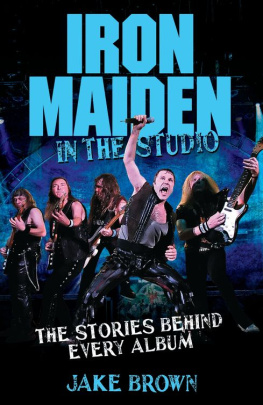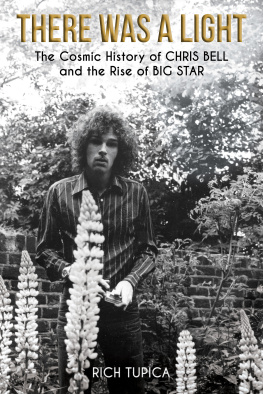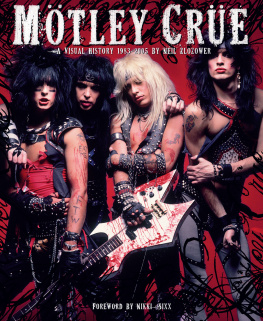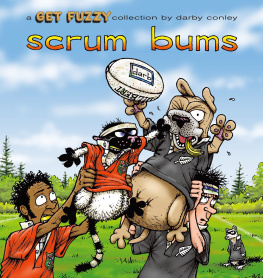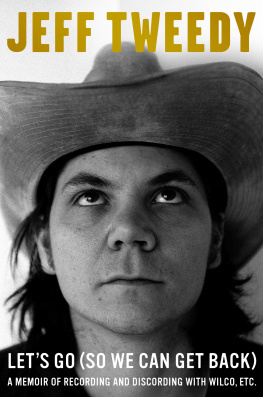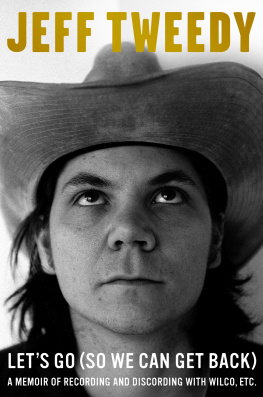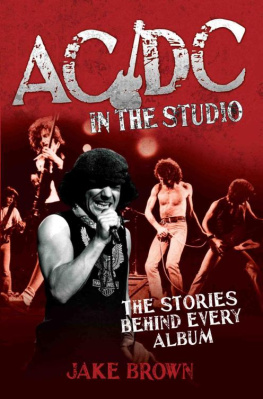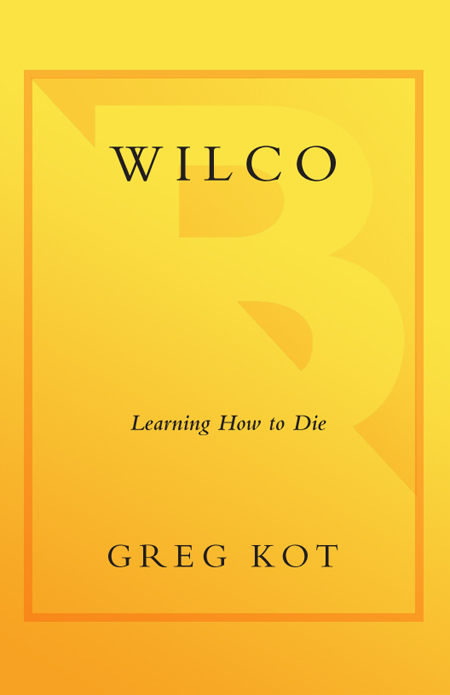FOR DEB, KATIE, AND MARISSA
CONTENTS
CHAPTER 1
YOU HAVE TO LEARN HOW TO DIE
Jeff Tweedy was sobbing as he sang. He and his bandmates in Wilco were coming off a grueling tour that had seen them play too many shows too far from home for far too long, and now they had just finished up four days of recording sessions in an Austin, Texas, studio. Listening to the playback, Tweedy could measure the toll. He could hear the depression and exhaustion in his voice, the misgivings about the life he had made for himself. Music was both the best thing that had ever happened to him and the worst. It kept him away from his wife and family for long stretches, and now he was beginning to doubt everything: his music, his marriage, the sound of his own voice. The songs held no answers; they simply channeled what was in his heart and mind. Both, frankly, had seen better, brighter days. I dreamed about killing you again last night, and it felt alright to me. He heard himself sing the words as they marched past him; rather than cushioning or muffling the lyrics, the music seemed to highlight them, making them even more difficult to bear. All Jeff Tweedy could think was, Ive failed. Ive let the band down. I sound like the most depressed person in the world.
But he hadnt failed. He had taken the first blind leap into an album that would prove to be one of the defining moments of his and Wilcos career. Summerteeth would expose his inner world to an almost unbearable degree but, with the help of his bandmates, somehow turn it into life-affirming music.
A couple of years later, Tweedy would write a song called War on War, in which he would sing, You have to learn how to die, if you wanna wanna be alive.
In that Austin recording studio, Tweedy died a little. It was a feeling he already knew intimately. There was the moment Jay Farrar took the band they had built together, Uncle Tupelo, and tore it apart by telling Jeff Tweedy he couldnt stand working with him anymore. The moment Tweedy turned an alternative-country concert for a club full of Johnny Cash fans into a punk-rock kamikaze mission. The night Tweedy baited a British audience until they wanted to tear his fool Yankee head off. And still to come would be the moment when he found his record label didnt want the best record hed ever made.
Beneath the facade of the small-town newspaper-delivery boy that he once was, the kid who wouldnt speak unless he was spoken to, Jeff Tweedy brings a self-confidence that cannot be ignored or denied. It can be willful and sometimes almost cruel, but it is not indiscriminate or random. The personality can best be glimpsed and assessed through the music, because Tweedy is a songwriter of knee-buckling honesty. The emotions in his songs examine the heart of darkness that, to some degree, lurks in all of us. His great subject is intimacywith a lover, with a friend, with music itself- and its price. His songs teeter between bliss and oblivion: There is something wrong with me; Ive got reservations about so many things, but not about you; I am trying to break your heart; Playing Kiss covers, beautiful and stoned.
He can ice the listeners blood with a scream; there are nights when Misunderstood sounds like a back-alley mugging, when his howl I want to thank you all for nothin, nothin at all repeats until the veins rise like blue fault lines down his neck. Or he can cut our hearts out with a whisper. Shes ajar climaxes with a line that lands with a sickening thud, a corpse being dropped from a third-floor window, but its sung with the understatement of an undertaker: She begs me not to hit her. Left unanswered is precisely what kind of holocaust the character in this song had to live through to deliver that line with such matter-of-factness. Not knowing is almost a relief.
In the way they marry the everyday with the surreal, the opaque with the anthemic, the acerbic with the melodic, Tweedys songs evoke the work of the great songwriters, not so much the usual suspects (Neil Young, Woody Guthrie, Bob Dylan) as the lost punks, iconoclasts, and misfits who put the color in Tweedys life between the headphones. Tweedy learned to be a great listener before he became a great songwriter and musician, and he developed a connoisseurs taste: Pere Ubus Peter Laughner, the Minutemens D. Boon, the English folkies Nick Drake and Bill Fay. With these rock outsiders Tweedy shares a certain daring, a way of looking at the world that demands more of it and more of himself, sometimes at a steep cost. Tweedys cry Maybe all I need is a shot in the arm on Summerteeth echoes the desperation of Nick Drake as he sang in the darkness of a British recording studio just weeks before entering a psychiatric rest home, murmuring about the worlds fading beauty, even though unable to lift his face off the studio floor.
With each Wilco albumincluding two Mermaid Avenue collaborations with Billy Bragg on the lyrics of Woody Guthrie Tweedy and his band have pushed their music to measure up against those lost giants. Theyve done what few bands in the post-Nirvana rock n roll world have managed: to better themselves with each album. Its not a stretch to imagine Dylan and the Band bashing out a Tweedy song such as Dreamer in My Dreams in the basement of Big Pink. And its possible to get so lost in the closing moments of Wilcos ensemble performances in Reservations or One by One that time melts away.
Jeff is one of the few people I am envious of as a writer, says Gary Louris, whose band the Jayhawks helped restore the art of songwriting to 1990s rock. I dont mean to be a curmudgeon, but theres very little that impresses me when I listen to new stuff. Whether its the White Stripes or whoever the band of the moment is supposed to be, I think, Thats kinda cool, but compare it to the greatest stuff in rock and it pales. I try to look at things like that in perspective, stacked against the best of all time, and I think Jeff ranks up there. You can put his stuff against anyones, and as a songwriter he doesnt have to back down to anyone. He lives the music, more than anyone I know. Hes immersed in music, and it shows.
R.E.M.s Peter Buck simply calls Tweedy one of the best songwriters of his generation.
It took time. For a shy small-town kid from the Midwest, to risk failure in the name of artistic expression is to contradict a lifetimes worth of social schooling. But the thirty-four-year-old man who wrote War on War isnt that far removed from the fourth grader who brandished a cassette copy of Bruce Springsteens Born to Run one day at school and informed his classmates that it was his creation. It was as if the kid werent challenging his classmates to believe so much as himself.
With his high-school friend Jay Far rar in Uncle Tupelo, Tweedy forged a style of music that both embodied and repudiated the small-town life he had known in Belleville, Illinois, a blue-collar town surrounded by farms and strip mines thirty miles southeast of St. Louis. Together they steered the band with a tight-lipped refusal to pander, a deft songwriting touch, and voices that sounded like they couldve fit comfortably alongside the plainspoken misfits on Harry Smiths Anthology of American Folk Music. But whereas Farrar was already a fully formed musical talent at the time of Uncle Tupelos first album, Tweedy grew into a formidable songwriter incrementally. On Uncle Tupelos fourth album, Anodyne, in 1993, he was finally sharing the songwriting load equally with Farrar, matching him song for quality song. Uncle Tupelos twang punk sowed seeds for an alternative-country movement that would become a fad by 1995, spawning a spate of major-label signings of Tupelo-like bands, a still-thriving Internet community of fans, and the fanzine


